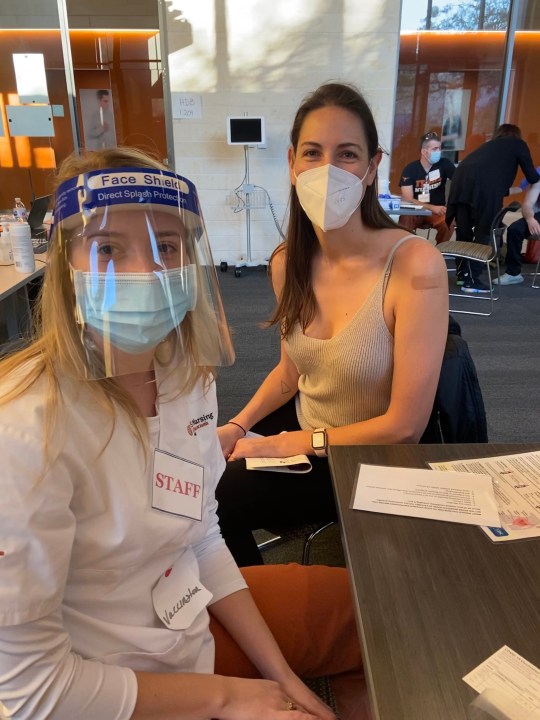‘What makes us less important?’ Rural Texas hospitals wait for Pfizer’s COVID-19 vaccine
KERRVILLE, Texas (KXAN) — “What makes us less important?” said Cory Edmondson, president of Peterson Health in Kerrville, Texas.
That’s the question he is asking after his hospital didn’t make the state’s list for Pfizer’s COVID-19 vaccine.
“We have to do that every day here in health care—ethical decisions—and it’s not easy, so I’m not going to judge that,” Edmondson said. “But we feel like our nurses and doctors are no less important than those in metropolitan areas. We’re treating the same patients; we’re venting patients.”
The Texas Department of State Health Services says the minimum order for Pfizer’s vaccine is almost a thousand doses, so it’s more likely to end up going to larger providers.

(Photo courtesy Peterson Health)
“Rural providers are not traveling to get the vaccine, urban providers generally aren’t sharing the vaccine. And so they’re left in the unenviable, frustrating position of being—just waiting to get in line for the vaccine,” said John Henderson, president of the Texas Organization of Rural and Community Hospitals, or TORCH.
Henderson represents 157 rural hospitals across the state. As of Thursday night, he says none have gotten on the state’s distribution list for Pfizer’s vaccine.
He says Moderna’s vaccine offers them hope for a more speedy delivery: It will ship in batches of 100 and be easier to store.
“Pfizer vaccine has to be kept at a very, very cold temperature, about negative 80 degrees Fahrenheit. And so that’s a little bit of a logistical challenge, especially for smaller organizations,” said Dr. Aliza Norwood, assistant professor of internal medicine & population health at Dell Medical School.
Dr. Norwood says that’s because Pfizer only conducted their trials using ultra-cold storage.
“Whereas Moderna was a little less conservative, and they kept it a little less cooled, and it still worked great,” she said. “So, it’s just the different approaches of their trials.”
Norwood says both vaccines are over 94% effective in preventing severe COVID-19 disease.

(Photo: Dell Medical School)
On Thursday night, Edmondson says his hospital received a notification from DSHS they’d be getting 500 doses of Moderna’s COVID-19 vaccine.
They don’t know when that will come in just yet, but he hopes his 600 staff members are able to get their shots, soon.
“People are working their hands to the nub to take care of the community,” he said.
A spokesperson for DSHS says if the FDA approval goes through for Moderna in the next few days, the first shipment is set for next week, unless there are Christmas delays.
He says more details will be provided Friday on that distribution list.
Dr. Norwood says both vaccines are based on mRNA technology, which is a little snippet of genetic code. Both require two doses each and have the same effectiveness.
Besides the storage temperature requirements, Norwood says there’s a slight difference in symptoms caused by the vaccine.
“The Moderna vaccine had a little bit less symptoms after the first shot than Pfizer did, but then a little bit more after the second shot. So overall, pretty similar,” she said.
She says the other difference is the Pfizer vaccine was studied on people 16 years and older, whereas Moderna was studied and people 18 years and older.










